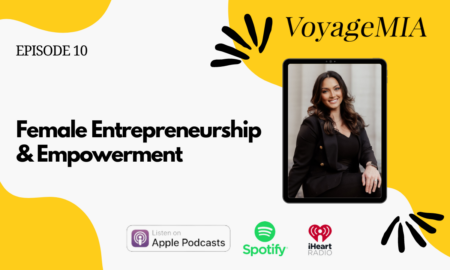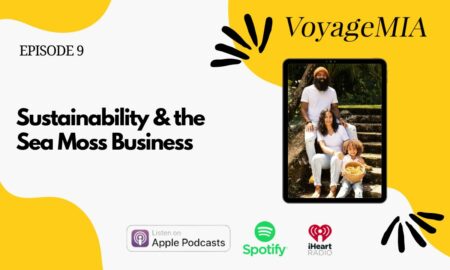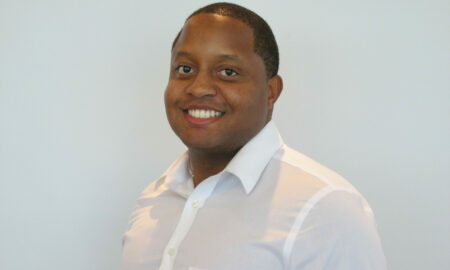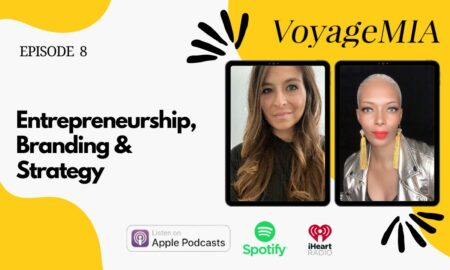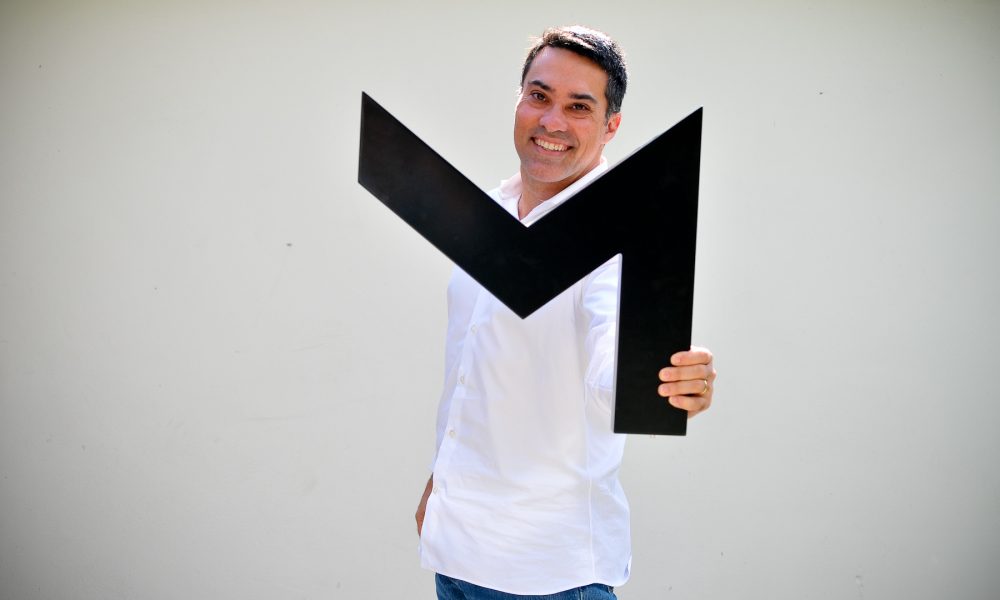

Today we’d like to introduce you to Thom Mozloom.
Thom, let’s start with your story. We’d love to hear how you got started and how the journey has been so far.
Back when I was 16 years old. I walked into a local TV station and, for the most part, begged for a job. I figured I’d be getting coffee or running errands, or doing some other menial tasks. Instead I was hired as the education reporter. That was when I learned a great lesson: “The most valuable thing a person can be given is an opportunity.”
For the next 20 years, I built my career working at the local and network level, I bounced from Philly to NY to LA to Virginia and finally to Miami. I moved up the chain from reporting to producing to directing and ultimately became Vice President at NBC.
A lot of my success in television could be traced to “failing up” – Television is a rough business and things, back then, were changing rapidly. New corporate owners, consolidation, and the growing importance of stock prices brought a new mantra into the business — “We’re going to do more with less.” In practical terms, that meant a lot of people getting let go. Sometimes I was the one telling people they were no longer employed. On more than one occasion, I was one of the people let go. After each time I got blown up, though, my next job was a couple more rungs up the ladder. I’ll never know whether it was me or the business that changed so dramatically but, what I do know is that with each rung up the ladder I climbed, I was less satisfied with my job.
Hunter S. Thompson once wrote, “The TV business is uglier than most things. It is normally perceived as some kind of cruel and shallow money trench through the heart of the journalism industry, a long plastic hallway where thieves and pimps run free and good men die like dogs, for no good reason.”
By the time I became a corporate VP that seemed to be the truest statement I had ever read.
My management strategy at that time was simply to protect the people in my department and to save as many of their jobs as humanly possible. Anyone who was young and ambitious, I steered to careers outside of TV when I could. I spent a lot of time talking to employees about what they really wanted to be doing, then I helped them get there.
Years of TV — especially corporate TV — had taken its toll on me. Layoffs were hard for a lot reasons. Telling the people who were left that we’d be “doing more with less” was often even harder. I stayed at it because I believed that I simply wasn’t qualified to do anything else but work in TV. I was 36 years-old. I had been in the business for 20 years. My job had transformed from one of creativity and purpose to one of triage. To put it bluntly, I was miserable and trapped.
Finally, in December of 2003, my wife, Lisa, gave me an ultimatum, either I get out of TV … or else.
It’s amazing how motivating fear is.
July 4th, 2003 was my Independence Day. Yes I scripted it that way. Nobody, including the guy who ultimately fired me, knew what I had done. I had no idea what I was going to do on July 5th but I knew it wasn’t going to be television. I left with no job, no plan, and no prospects. What I did leave with, though, was a pretty decent severance package and a good bit of my salary that would still be paid.
The first few months out of television were pretty tumultuous. It was almost like a period of mourning. In retrospect, it was probably more akin to some sort PTSD. Until I was out, I had not realized how toxic the industry had made me. The fog of 20 years in the industry took about six months to lift. When it did, I found myself loath to go back to any semblance of my former life. I was offered a litany of different jobs but turned them down, mostly because I couldn’t convince myself to go back to anything that might resemble the type of cut-throat, corporate structure that I just bailed from.
One day a friend called and offered me a job at his agency. He wanted me to head their branding team. After we spoke for a while about the opportunity, he asked me how many jobs I’d turned down since leaving television. “Five or six,” I said.
He then told me to call them all back and accept all of the jobs. He said that I needed to start my own agency and that this was how it was going to begin.
Naive as this seems now, that’s exactly what I did. And, as incredible as this may seem, it worked. I started with three solid clients. After that, I took every job that came my way. I started hiring people. I rented office space. I joined business associations.
I became awe and we were committed to running a company that was the opposite of corporate. We wanted to put people before profits and treat everyone on the team like an adult. One of my employees called The M Network the “Haight-Ashbury” of agencies. People liked working for us and we liked working together.
Pretty soon we had a stable of clients that included Medicare companies, auto dealerships, appliance stores, national chains, personal injury attorneys… you name it, we took it. We were successful and profitable. I had no idea what I was doing but it seemed to be working.
And then the phone rang.
It was one of our personal injury attorneys. He was screaming and cursing… which wasn’t at all unusual for him. He claimed we screwed up one of his radio commercials (which we didn’t). Several days later, he sued us for several million dollars. He then orchestrated a client mutiny, in which he personally convinced a third of our clients (representing 60%-70% of our revenue) to jump ship to another agency.
We lost the case. We lost our clients. And we were on the verge of losing the company.
On my birthday in 2011, I was forced to lay off every single employee.
One by one they came into my office. I had been completely honest with each of them. I told each of them what had happened. We all wept together. And then — one by one — each person came back and told me that this wasn’t going to happen. Most of the team volunteered to work for free until we got back on our feet. People that the company owed money, vendors and the like, came to me and told me that they would work with us even if they didn’t get paid. Even our landlord let us out of our lease with no penalty. It was truly a miraculous time for which I will be forever grateful.
In looking at all that had transpired, assessing the carnage, I wanted to say that it was that jack-ass attorney, that slimy, greedy, nasty SOB that ruined my business. The only problem was, that simply wasn’t true.
Was the attorney a jack-ass? Yes.
Was he a slimy, greedy, nasty SOB? Yup.
But he was all of those things before The M Network started doing business with him. I knew it going in. How could I have been surprised when a horrible person acted horribly? Like my Dad always says, “You can’t blame a dog for barking.”
That’s when I accepted the fact that everything was 100% my fault. It wasn’t bad luck. It wasn’t a bad client. It was me. I chose to work for bad people. All along, I tried to convince myself that the success of The M Network was worth it. My employees were worth it. I rationalized that working for a couple terrible human beings was ok because they provided the revenue that allowed me to work with, and help support, other great people.
That logic was stupid — and it resulted in a lot of people getting hurt. It was my fault, nobody else’s.
I personally apologized to all the people my decision making had hurt. Then I committed to rebuilding the company, hiring everyone back, and doing things the right way from that point on.
Doing things the right way didn’t just mean The M Network would treat its employee’s right. It meant that The M Network would never again work for people we didn’t like, didn’t respect, or didn’t trust. We would, instead, be selective about our clients, even if that meant that we were less profitable.
In the early days of the rebuild, I fired two other big clients. I turned down work from another potential client because I didn’t get along with the boss. My staff was nervous, but they were loyal.
When the company first started, our motto was, “We can do anything.” During the rebuild, we changed that motto slightly. Now it’s, “We can do anything. We choose to do good.”
Today The M Network is stronger than it ever has been. Our staff, while growing, remains a tight knit family who love, respect and trust one another. We have an outstanding group of clients that do things we admire and believe in — and who admire and believe in us. And we get to work on projects that actually have positive impact in the world.
Overall, has it been relatively smooth? If not, what were some of the struggles along the way?
The book of James in the Bible talks about times of trouble actually being a blessing because the end result of those trials will be good. I read that book a lot when we were going through our lawsuit and the subsequent rebuild of the company. It gave me significant comfort and focused my attention on the future.
Since then, as a team, the hardest thing we face is to collectively be ok turning down work or walking away from clients because they don’t fit our corporate culture. When we first started the rebuild this was significantly more difficult. Back then those decisions were always tinged in the idea that the client we were turning down might be the last one to ever walk through our doors.
Over the past few years, as we have picked up new clients and strengthened our relationship with our longstanding clients, the concern has been more manageable.
Please tell us about The M Network.
The M Network is a full service branding and advertising agency. Simply put, we help organizations tell their story in ways that are both truthful and compelling.
Our services include branding, advertising, public relations, crisis management, content creation, media and presentation training, high end film and video production, design, digital advertising, web building, media buying, and pretty much anything else anyone could ever need to communicate effectively.
As a boutique agency, we work with a variety of clients over a broad spectrum of business sectors including tourism, pharmaceuticals, financial institutions, corporate law, colleges and universities, political campaigns and causes, government agencies, philanthropic organizations, non-profits and NGO’s.
The thing that The M Network is known for, though, is that we are the “good guy agency.” We love worthy causes. We believe all of our clients benefit from doing good things in their respective communities, and we actively seek out opportunities that we and our clients can be passionate about.
If you had to go back in time and start over, would you have done anything differently?
There are three incredibly important lessons I’ve learned from heading up The M Network.
The most painful yet valuable lesson is that business opportunities can’t be measured solely in dollars. The impact of taking on a bad client can profoundly impact the chemistry, culture and emotional wellbeing of the organization as a whole. In that sense the success of our organization isn’t based just on the clients we have and the revenue we earn but, also, on the work we turn down. We never worry about the size of the contract. We look to do good work for good people.
The second lesson that I benefited from was that relationships count more than anything else. When you treat people fairly and honestly — whether they be employees, vendors, or clients — it breed opportunities to do incredible work. For me, personally, it also allowed me to experience incredible grace and generosity from people when I messed up.
The third lesson is one that I’m still in process of learning. It’s about the role of a leader. Whether I like it or not, no matter how hard I have rebelled against the “corporate” structure, my staff, and the people I work with and for, see me as a leader. I don’t ever want to take that responsibility lightly or to shirk away from that again.
There’s no more “winging it.” Good leaders can lead in the wrong direction — and that has consequences.
My goal today, therefore, is to constantly work on becoming the type of person worthy of following and to have a very clear understanding of where I am leading. In order to do that, I have surrounded myself with other good leaders, men and women I can follow. I bug them. I ask them questions. I bounce things off of them. Above all, I let the people around me — the people who I’ve been entrusted to lead — see me be a follower as well.
Contact Info:
- Website: TheMNetwork.com
- Phone: 305 571 1455
- Email: info@themnetwork.com
- Twitter: @TheMNetwork








Getting in touch: VoyageMIA is built on recommendations from the community; it’s how we uncover hidden gems, so if you know someone who deserves recognition please let us know here.












